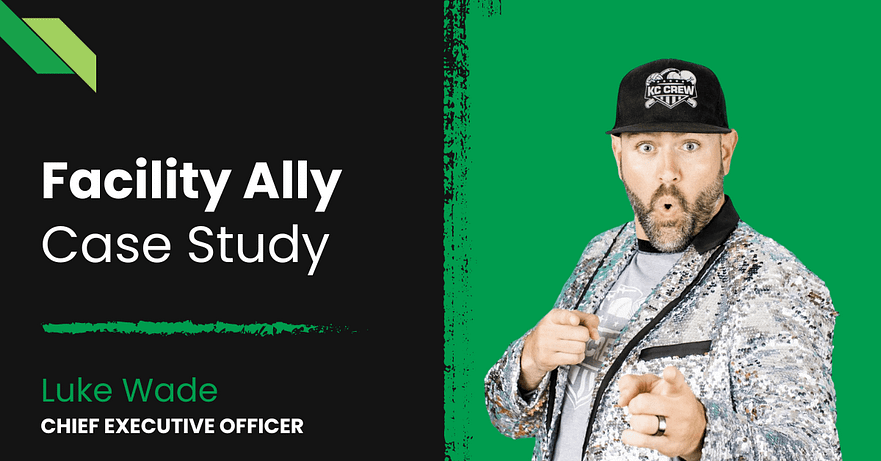How to Hire Mobile Application Developers: The CTO s Framework That Actually Works (Tested on 300+ Developers)
Stop googling “how to hire iOS developers” and “how to hire Android developers.”
I’ve hired over 300+ developers. Want to know the one thing that predicts success better than years of Swift experience, Android certifications, or a perfect portfolio?
It’s not what you think.
Last month, a client spent 12 weeks interviewing mobile developers. Same process for each candidate: technical screening focused on React Native vs. Flutter, platform-specific coding challenges, architecture discussions about iOS vs. Android differences.
Hired three developers. Two quit within 90 days. The third is carrying the entire mobile team.
Here’s what’s wild: The star performer had the least mobile experience on paper.
The Problem with Traditional Mobile Developer Hiring
Most CTOs approach mobile hiring as if it’s a completely different species from web development. They create separate processes for iOS, Android, React Native, and Flutter developers. They obsess over platform-specific knowledge while missing what actually matters.
Here’s the truth: The reason your mobile hiring process fails isn’t because you’re not asking the right Swift questions. It’s because you’re solving the wrong problem entirely.
After placing 300+ developers (including 100+ mobile specialists), we’ve cracked the code on what actually predicts long-term success in mobile development. And it has nothing to do with which IDE they prefer.
Why Most Mobile Developer Hiring Advice is Wrong
The typical advice you’ll find:
- “Test their knowledge of platform-specific frameworks”
- “Ask about App Store submission processes”
- “Verify their understanding of mobile UI patterns”
- “Check their experience with device testing”
The reality: These questions filter for experience, not capability.
I’ve seen iOS developers with 5 years of experience who couldn’t adapt to changing requirements. I’ve also seen backend developers who learned Swift in 2 weeks and shipped apps that generated millions in revenue.
The difference? How they think, not what they know.
The Mobile Developer Hiring Framework That Actually Works
Phase 1: The Mobile Mindset Assessment
Forget platform-specific trivia. Test these three universal mobile development skills:
1. User-Centric Problem Solving
Present a real mobile user experience challenge from your app.
“Our users are abandoning the checkout flow on mobile. iOS completion rate is 45%, Android is 38%. Walk me through how you’d investigate and solve this.”
What you’re listening for:
- Do they ask about user research data?
- Do they consider device performance differences?
- Do they think about network conditions and loading states?
- Do they suggest A/B testing approaches?
Red flag: They immediately jump to technical solutions without understanding user behavior.
Green flag: They ask about analytics, user feedback, and business impact before suggesting code changes.
2. Cross-Platform Thinking
Even if you’re hiring for a specific platform, mobile developers need to understand the broader ecosystem:
“You need to implement push notifications that work consistently across iOS and Android. How do you approach this?”
What you’re testing:
- Understanding of platform differences vs. similarities
- Ability to design unified solutions
- Knowledge of when to use native vs. cross-platform approaches
Smart answer: They discuss notification permission models, delivery guarantees, and user experience consistency—not just Firebase implementation details.
3. Mobile Performance Intuition
Mobile developers must think differently about resources.
“The app is consuming too much battery on older devices. How do you diagnose and fix this?”
Look for:
- Systematic debugging approach
- Understanding of mobile resource constraints
- Knowledge of profiling tools and techniques
- Consideration of real-world device diversity
Phase 2: The Reality Check (Mobile Edition)
Skip theoretical coding challenges. Give them actual mobile problems.
The 30-Minute Mobile Challenge
Instead of “build a todo app,” present a real scenario:
“Our app crashes on iPhone 12 devices running iOS 15.3, but works fine on newer models. You have access to crash logs and user reports. Walk me through your debugging process.”
Why this works:
- Tests real-world problem-solving over academic knowledge
- Reveals their approach to mobile-specific debugging
- Shows how they handle incomplete information
- Demonstrates communication skills with non-technical stakeholders
What you’re NOT looking for: Perfect syntax or complete solutions
What you ARE looking for: Logical thinking, systematic approach, and clear communication
Sample Reality Check Scenarios
For iOS Specialists:
- App Store rejection for memory usage on older devices
- User complaints about slow loading on cellular networks
- Inconsistent behavior between iPhone and iPad versions
For Android Developers:
- Performance issues across different Android versions
- Navigation problems on devices with different screen sizes
- Background task limitations affecting app functionality
For Cross-Platform Developers:
- Feature parity issues between platforms
- Platform-specific user interface inconsistencies
- Code sharing challenges between the mobile and web versions
Phase 3: The Team Integration Test
Technical skills get you hired. Collaboration keeps you employed.
The Mobile Code Review Exercise
Pair them with your mobile team for 45 minutes:
- Review the actual code from your mobile app
- Discuss a recent architectural decision
- Have them suggest improvements to existing features
Observe these behaviors:
- Constructive Feedback: Do they suggest improvements respectfully?
- Knowledge Sharing: Do they explain their reasoning clearly?
- Learning Attitude: Do they ask questions about your specific implementation?
- Team Chemistry: Do they enhance discussion or dominate it?
4 Mobile-Specific Red Flags That Predict Failure
1. The Platform Purist
“iOS is superior to Android in every way,” or “Native is always better than cross-platform.”
Why this matters: Mobile development often requires pragmatic platform decisions. Rigid thinking leads to over-engineering and missed deadlines.
2. The Framework Fanatic
“React Native solves everything,” or “Flutter is the future, everything else is obsolete”
The problem: Technology zealots can’t adapt when business requirements change. You need developers who choose tools based on context, not preference.
3. The Perfectionist Paralysis
“We can’t ship until it works perfectly on every device”
Reality check: Mobile development requires iterative improvement. Perfect is the enemy of shipped.
4. The Desktop Mindset
“Why can’t we just make the web version responsive?”
Warning sign: They don’t understand mobile-first design principles or mobile user behavior patterns.
4 Green Flags That Actually Predict Mobile Success
1. Business Impact Focus
“How does this feature affect user retention?” or “What’s the conversion impact of this change?”
Why this matters: Great mobile developers think beyond code—they understand how their work affects business metrics.
2. User Empathy
“Have we tested this on slower devices?” or “How does this work for users with limited data plans?”
The insight: Mobile developers must consider diverse user contexts—device capabilities, network conditions, and usage patterns.
3. Pragmatic Problem-Solving
“We could build this natively for better performance, but given our timeline, a cross-platform solution makes more sense.”
What this shows: They balance technical idealism with business reality.
4. Continuous Learning Mindset
“I haven’t used SwiftUI in production yet, but I’ve been experimenting with it for our use case.”
Why this predicts success: Mobile technology evolves rapidly. Adaptive learners stay relevant.
The ROI of Getting Mobile Hiring Right
Case Study: FinTech Mobile App
The Challenge: Needed iOS and Android developers to rebuild the mobile banking app
Old Hiring Approach:
- Separate processes for iOS and Android roles
- Heavy focus on platform-specific experience
- 16 weeks to fill both positions
- First iOS hire quit after 3 months
New Framework Results:
- Used the same assessment for both platforms
- Hired an iOS developer with 2 years of experience, an Android developer with 4 years
- Both candidates demonstrated strong problem-solving and user focus
- Filled both positions in 6 weeks
- App launched 2 months ahead of schedule
- Both developers are still with the company 18 months later
ROI Impact:
- Saved $120K in recruitment costs
- Gained 10 weeks of development time
- Avoided costly rehiring cycle
Case Study: E-Commerce Mobile Team
The Situation: Startup needed to scale the mobile team from 2 to 8 developers
Framework Application:
- Prioritized learning ability over specific framework experience
- Tested mobile-specific problem-solving skills
- Focused on user experience thinking
Results:
- Hired a mix of junior and senior developers
- Junior developers are productive within 3 weeks
- Senior developers were mentored effectively
- Team delivered iOS and Android apps simultaneously
- 95% code sharing between platforms achieved
Business Impact:
- Mobile revenue increased 300% in 6 months
- Customer acquisition cost decreased by 40%
- App store ratings improved from 3.2 to 4.7 stars
How to Implement This Mobile Hiring Framework
Week 1-2: Assessment Design
Create your mobile-specific Reality Check problems:
- Document 3-5 actual mobile issues your team has faced
- Prepare user experience scenarios relevant to your app
- Identify performance challenges specific to your mobile stack
Design your Mobile Mindset questions:
- Focus on user experience problem-solving
- Include cross-platform thinking scenarios
- Test mobile performance intuition
Week 3-4: Team Training
Prepare your mobile team for candidate integration:
- Brief them on assessment goals
- Practice the code review exercise
- Establish evaluation criteria for collaboration skills
Create your scoring framework:
- Weight problem-solving is higher than specific knowledge
- Include team feedback in final decisions
- Track prediction accuracy over time
Ongoing: Continuous Improvement
Track these mobile hiring metrics:
- Time to productivity for new mobile hires
- Feature delivery velocity after hiring
- Mobile app quality metrics (crash rates, performance)
- Developer retention rates
- User satisfaction scores
Refine based on results:
- Update Reality Check scenarios quarterly
- Adjust assessment based on successful hire patterns
- Share learnings across your hiring team
Why This Framework Works for Remote Mobile Teams
Here’s where smart CTOs gain a massive advantage:
While competitors fight over local mobile talent using broken processes, you can access global mobile development expertise. The principles work the same whether you’re hiring in Silicon Valley or Manila.
Remote mobile hiring actually forces better practices:
- Communication skills become essential (great for user collaboration)
- Documentation improves (critical for mobile team coordination)
- Results matter more than presence (perfect for mobile development)
- Tool proficiency increases (essential for mobile debugging and testing)
The offshore mobile advantage:
- Access to developers with diverse device testing experience
- Cost efficiency allows for larger, more specialized teams
- Different time zones enable round-the-clock development and testing
- Global perspective improves app localization and user experience
4 Common Mobile Hiring Objections (And Why They’re Wrong)
1. “But what about App Store submission experience?”
App Store processes change constantly. Hire smart developers who can learn current requirements, not ones stuck in outdated practices.
2. “Remote mobile developers can’t test on real devices effectively.”
Modern device cloud services and comprehensive testing frameworks make remote mobile testing more thorough than most in-house setups.
3. “Mobile development requires too much real-time collaboration.”
The best mobile apps are built by teams that communicate through clear specifications and async code reviews—skills that improve all development, not just remote work.
4. “Junior developers can’t learn mobile development remotely.”
Junior developers often learn faster with global mentorship and diverse code exposure than in isolated local teams.
Your 30-Day Mobile Hiring Implementation Plan
Days 1-7: Framework Setup
- Document your mobile app’s biggest user experience challenges
- Create 3-5 Reality Check scenarios from actual problems
- Prepare Mobile Mindset assessment questions
- Design team integration exercises using your mobile codebase
Days 8-14: Team Preparation
- Train your mobile team on assessment goals
- Practice candidate evaluation exercises
- Establish scoring criteria for problem-solving vs. knowledge
- Set up tools for remote mobile candidate assessment
Days 15-21: Pilot Testing
- Run 3-5 candidates through the new framework
- Compare assessment predictions with team feedback
- Adjust scenarios based on candidate responses
- Refine integration exercises for better insights
Days 22-30: Process Refinement
- Analyze pilot results vs. traditional hiring outcomes
- Update job postings to reflect the new assessment approach
- Create templates for consistent candidate evaluation
- Establish metrics tracking for continuous improvement
The Mobile Hiring Reality: Local vs. Global Talent
Local Mobile Hiring Challenges:
- Limited talent pool in most markets
- High salary expectations for mobile specialists
- Competition from FAANG companies for experienced developers
- Long hiring cycles due to candidate scarcity
Global Mobile Hiring Advantages:
- Access to developers with diverse device and market experience
- Cost efficiency enables larger, specialized mobile teams
- Different time zones allow continuous development and testing
- Global perspective improves app internationalization
Success Story: SaaS Company Mobile Expansion
A client needed to add mobile capabilities to their web-based SaaS platform:
- Local Hiring Attempt: 4 months, no qualified candidates within budget
- Global Hiring Result: 2 iOS and 2 Android developers hired in 6 weeks
- Outcome: Mobile apps launched in 3 months, generated 40% of new user acquisitions
Ready to Hire Mobile Developers Who Actually Ship?
Here’s what happens next:
I’ve used this exact framework to place 150+ mobile developers with a 94% retention rate. Instead of rebuilding your mobile hiring process from scratch, let me show you how it works in practice.
What you’ll get in our strategy session:
- Assessment of your current mobile hiring challenges
- Customized Reality Check scenarios for your mobile app
- Framework adaptation for your specific mobile technology stack
- Access to pre-vetted mobile developers who’ve passed this assessment
The mobile app market is growing 23% annually. Your competitors are struggling to find qualified mobile developers using outdated hiring methods.
You can either join that struggle or use this framework to access global mobile talent while they’re still fighting over local candidates.
The choice is yours. But choose quickly—the best mobile developers are being hired by CTOs who understand that skills matter more than zip codes.
Book your free mobile hiring strategy session: No sales pitch. Just a genuine conversation about solving your mobile development hiring challenges with a proven framework.



